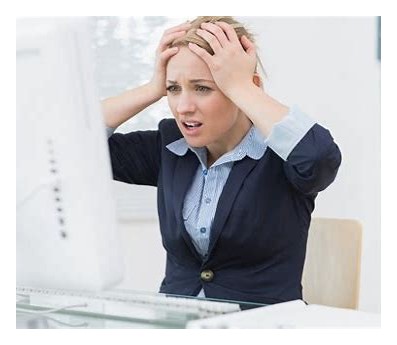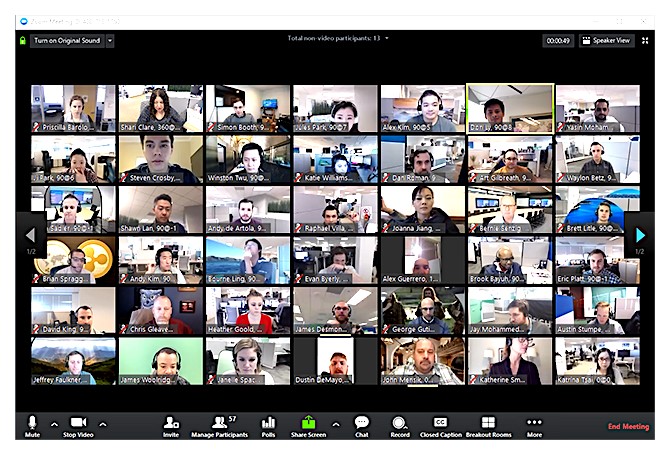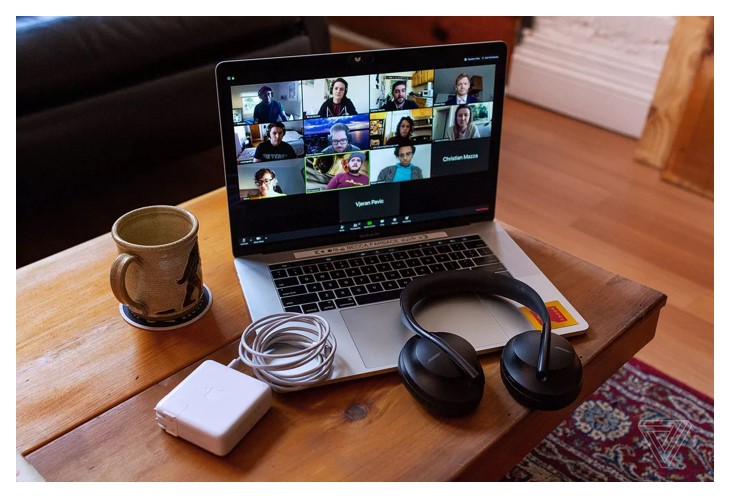F eeling irritable, short-tempered, moody… every little thing is bothering you? Maybe it’s the Zoom-effect? What’s that? Well, I made it up, but here’s my story of how it came about.
eeling irritable, short-tempered, moody… every little thing is bothering you? Maybe it’s the Zoom-effect? What’s that? Well, I made it up, but here’s my story of how it came about.
The pandemic of 2020 affected how many of us live and work. Many of us found that working from home and doing our work online opened doors of opportunity and challenges in how we communicate and work with one another. These changes are not going away and we all have to adapt; whether it's taking classes on line to complete a degree or managing a team of remote workers in different time zones and/or continents. All of these elements and then some, has created an entirely new set of challenges. Since I’m a people-person and enjoy face-to-face interactions with my clients and students, I thought my biggest challenge would be getting the technology to work properly. I was mistaken. I took to the technology pretty quickly and in many cases, prefer it—which surprised me.
H owever… here’s what happened to me. One afternoon during the pandemic, I had several Zoom meetings, in which I was in front of the “Brady Bunch-like” screen, for over seven hours that day, my eyes were hurting and that I had this aching sensation behind the bridge of my nose between and behind my eyes. In addition to that, the back of my neck at the base of my skull, as well as across my upper back and shoulders ached.
owever… here’s what happened to me. One afternoon during the pandemic, I had several Zoom meetings, in which I was in front of the “Brady Bunch-like” screen, for over seven hours that day, my eyes were hurting and that I had this aching sensation behind the bridge of my nose between and behind my eyes. In addition to that, the back of my neck at the base of my skull, as well as across my upper back and shoulders ached.
Then, when I was done, I felt completely and totally exhausted; but a kind of exhaustion such as I’d never experienced or felt before—it felt as if all the energy was drained out of me; like pulling the plug and draining the water out of the bathtub. It didn’t make any sense.
The next day, it got even stranger. In a phone conversation with a friend, I got extremely irritated, short-tempered and argumentative—which is uncharacteristic of me and I had to apologize.
What was going on? What was different? What had changed? I was ‘doing’ the same things, but I realized there was a big difference now; I had been spending much longer periods of time in these Zoom meetings, in front of the screen as opposed to the in-person, face-to-face interactions I was used to. In addition to that, these meetings go from one to the next with a click and little or no transition time in between; there’s hardly any break.
At that point I decided to do a little bit of informal research. I started talking to people. I put it out there to my social media network and, while this is unsubstantiated data, the people who responded expressed that they were having similar experiences themselves.
From there the term Zoom-Effect came to me. Zoom-Effects are some common reactions people have shared with me they’ve experienced from participating in continuous on-line meetings. They are:
- Zoom-aches: that aching behind the bridge of the nose, between the eyes, in the neck and shoulders
- Zoom-ittude: feeling a cranky, irritable, short tempered, argumentative, those little things that usually don’t bother you suddenly do
- Zoom-austion: The energy drain
Zo om-Aches: After consulting with my eye doctor I found out this was very common. The following actions provided some relief:
om-Aches: After consulting with my eye doctor I found out this was very common. The following actions provided some relief:
- Ergonomic issues: Lighting, chair comfort, monitor position
- Rest Breaks: After two hours of continuous computer use, take a 15-minute break to rest my eyes. Also, every 20 minutes or so, look away from the monitor into the distance and re-focus my eyes.
After a minor adjustment to my monitor and taking those short eye-rest breaks, I’ve noticed relief from the eye portion of the Zoom-aches.
The next person I contacted was my physical therapist. I learned some stretching exercises that helped with the neck and shoulder pain.
Zoom-ittude: This was a bit trickier. Watch out for on-line negativity circulating in the 'Zoom-iverse.' I found that I’ve got to insulate myself from it and find a way to overcome the negativity because it affects me… even though I may not realize it.
“When life deals you lemons—make lemonade!” What that says to me is I’ve got to be a part of the solution and not the problem. How can I stay positive in spite of everything going on around me? Following are a few things that worked for me
Positivity: For me, I have to saturate my brain with positivity and avoid the negativity. Now this is different for everyone, and each person needs to find a method that will work for them. For me, I had to concentrate on two major areas; media exposure and environment.
- Media Exposure:
>News: I limit the amount of news I watch—I find out what I need to know.
>Social Media: I limit my social media activity. I only interact with positive, encouraging or humorous posts and avoid any controversy or negative gossip that might drag me down.
- Humor: When I have a chance to watch television I like to watch shows and programs that make me laugh. Find whatever it is for you. For me, I like old shows such as The Golden Girls and Everybody Loves Raymond or comedies like The Marvelous Mrs. Maisel on Netflix. The point is to find what will work for you. Stay away from the tear-jerkers and heavy dramas.
- Environment: The environment can have a strong impact on my attitude and I had to focus on where I had some power and control. The pandemic taught me that I couldn’t do anything about being in lock-down, but I could change the environment around me. How could I create a positive environment?
One of the first things I could do was limit the amount of time in Zoom meetings. I you're scheduling meetings, make every effort to avoid scheduling long blocks of time in which you or your team need to be on line. My suggestion is no longer than two to three hours at a time. After that the risk of Zoom fatigue increases.
In addition to limiting my Zoom time, I found three things I could use to positively impact my environment; music, sharing and breaks.
>Music: Music helps me keep positive messages in my mind. I compiled a playlist of my favorite songs, songs made up of positive, encouraging, inspirational lyrics, and play them very softly, almost, in the background while I work. As I go about my day, I find myself singing the songs in my head and it works like positive self-talk.
>Networking: There’s not much I can do about having to work from home; but the elimination of commuting time can give me a little more time to network. I can spend that hour I used to need to commute and reach out to and correspond with my LinkedIn connections, as well as join professional networking groups in my field and attend their meetings to help grow my professional network.
>Breaks: Make a schedule and schedule blocks of time for yourself; keep a sense of humor, have fun!
Zoom-austion: By making these changes, I found the Zoom-austion has disappeared. I get the right amount of rest; Even when working remotely, I still dress for work every day just as I would if I were going into the office. Getting myself looking ‘Zoom-worthy’ every day gets me in the right frame of mind and I keep my camera on when in meetings. I can’t say that this is the be-all-end-all, but I can say it worked for me.
Along with everyone else, we know that the remote workplace is not going away -- Zoom is here to stay with all of it's pros and cons, we can take care of ourselves and continue to produce results on our jobs and find a healthy work and life balance between the two.
References:
- Marina Dreytser, Physical Therapist, Universal Cage Therapy Center of New Jersey
- Dr. Stuart M. Lonsk, OD, PA, Roselle, New Jersey
